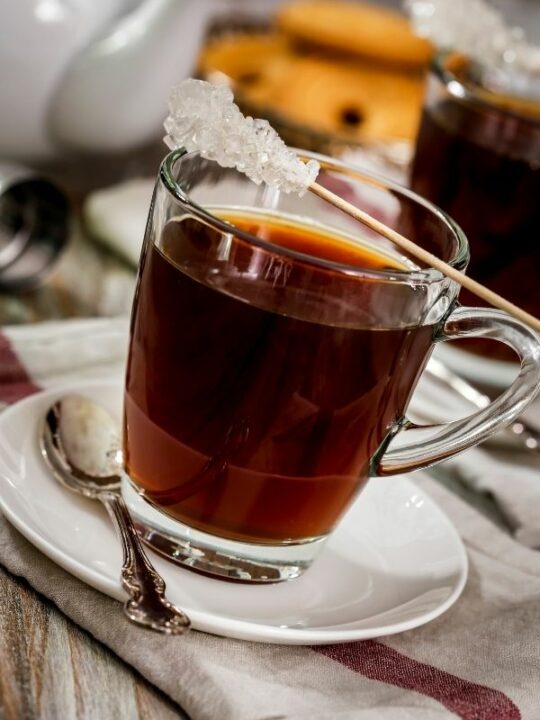One of the most common reasons for drinking tea is to feel alert.
On the other hand, many people drink tea as part of a ritual that helps them feel more centered and at peace.
With the conflicting reasons for drinking tea, it’s no surprise that many people are unsure of what effect black tea can have on your ability to sleep. Let’s take a closer look at this question.
Will black tea keep me awake?
A cup of black tea usually has 40-60mg of caffeine, with some blends holding up to 80mg. That’s as much as a cup of coffee! Black tea’s high caffeine content means it does keep you awake. If you want tea before bed, try lavender, chamomile or another herbal tea. Decaffeinated black tea is also fine.
Black tea and caffeine
Generally speaking, black tea is the tea with the highest caffeine content, usually between 40 and 80 mg of caffeine. The average cup of coffee has between 70 and 120mg, so the strongest black teas are actually more caffeinated than the weakest coffees.
Black tea’s caffeine means that, among other things, it’s a useful drink if you need to wake up. If you’re trying to wind down and relax, on the other hand, black tea can actually make that harder.
The short version is that if you’re having trouble sleeping and you regularly drink black tea in the evening, you probably need to switch to something with less caffeine. Too much black tea can also lead to other problems, like anxiety and increased heart rate.
Caffeine side effects
The Center for Disease Control (CDC) recommends sticking to 400mg of caffeine or less per day to avoid serious side effects. That said, some people are more sensitive to caffeine, and young children especially can be highly susceptible to its effects.
In extreme cases, overconsumption of caffeine can lead to seizures and even death. However, this would require you to drink more than three times the CDC guideline, or 1200mg of caffeine, per day. At 80mg per cup, you’d have to drink 15 cups of black tea to reach that dangerous amount.
All the same, the caffeine content of black tea is on the high side. If you’re a heavy tea drinker and consume more than a few cups a day, you’re likely to run into some unwanted side effects.
Here are a few common problems caused by too much caffeine:
- Anxiety
- Insomnia
- Stress
- Heart palpitations
- Stomach upset and nausea
If you’ve noticed any of these symptoms, it’s time to put the black tea down and reach for something with less caffeine. A glass of water, for example.
The best time of day to drink black tea
Even though you’ll start to feel stimulated as soon as 15 minutes after a cup of black tea, caffeine takes about six hours to start working its way out of your system.
In other words, the best time to drink black tea is in the morning or when you need a quick pick-me-up but know you’ll have lots of time to cool down before sleeping.
For best results, avoid drinking black tea if you’ll need to get to sleep in the next four to six hours. That will help the caffeine start to drain from your system and ensure you can get a proper night’s rest.
The best type of tea for bedtime
If black tea is out, what type of tea is the best to drink at night?
Almost any other type of tea contains less caffeine than black tea. Pu erh is the exception, containing around the same amount.
In order of most to least caffeine, your options are green tea, oolong tea, white tea and purple tea. However, some green teas and oolong teas can contain almost as much caffeine as black tea with up to 60mg per cup.
Especially if you’re sensitive to the effects of caffeine, your best bet is to find an herbal loose leaf tea that you enjoy. Although herbal teas are not technically tea (they contain no tea leaves), they can be just as delicious and often contain calming herbs. Likewise, red tea or rooibos is not a true tea and has no caffeine content.
For best results, try an herbal tea that has lavender, chamomile or other herbs proven to help you relax. You can also try Ashwagandha tea, an herbal drink made from a root that’s been shown to reduce stress and anxiety, as well as insomnia.
Of course, if you just really want the smooth taste of black tea, try drinking decaf. Unlike regular black tea, decaffeinated black tea has only 2mg of caffeine per cup. That’s not enough to affect most people, so you will most likely be able to sleep just fine.
